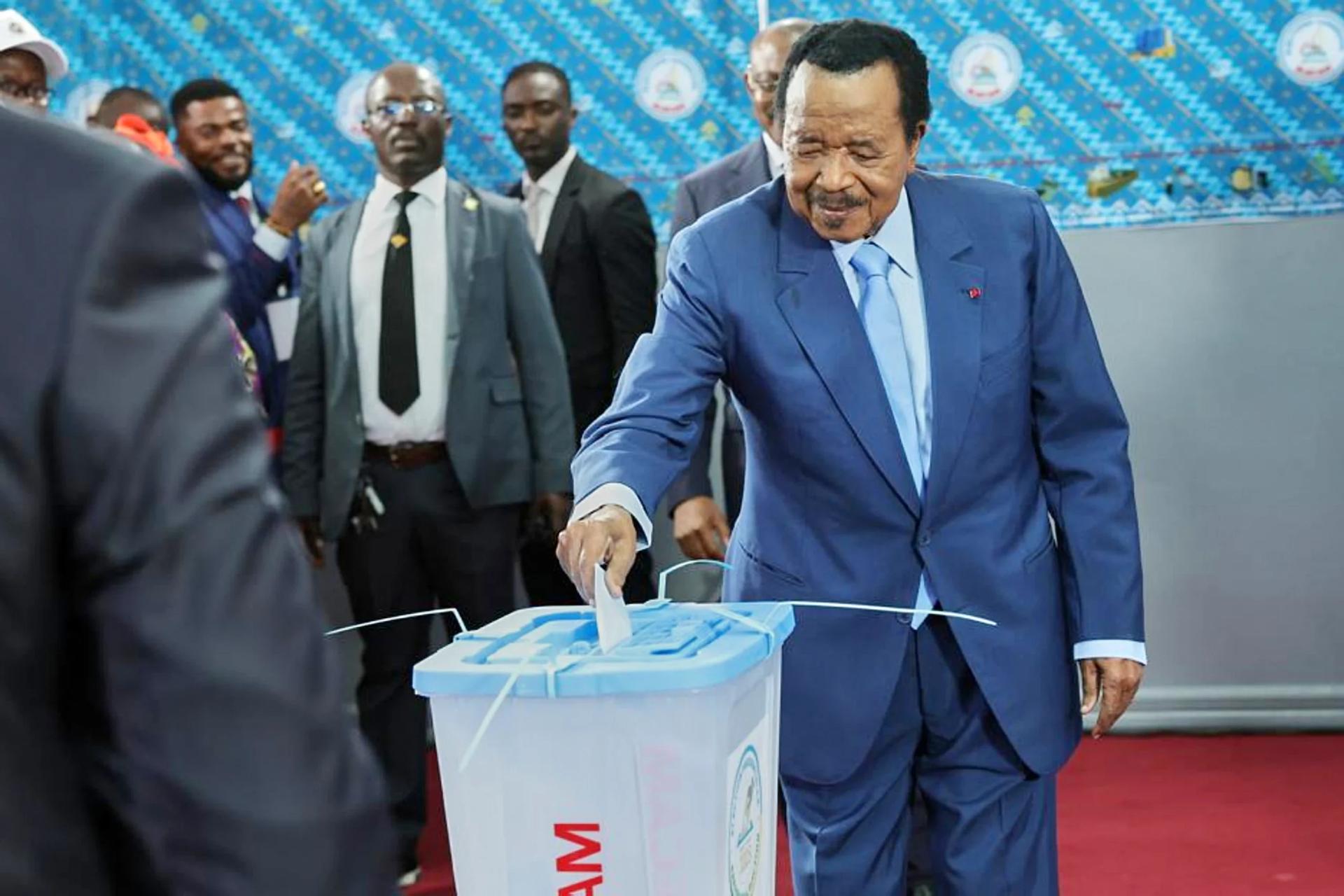YAOUNDÉ, Cameroon – Jesuit Father Lado Ludovic has made an urgent rallying cry to the people of Cameroon, declaring the moment for nonviolent resistance is “now or never.”
The call came even before the Constitutional Court declared President Paul Biya winner of the October 12 Presidential election.
Biya won with 53.66 percent of the vote, according to the President of the Constitutional Council.
Biya’s primary challenger, Issa Tchiroma Bakary, placed second with 35.19 percent.
As the results were announced, Biya’s supporters burst into celebration, chanting, “Paul Biya, our President, Father of the Nation.” However, Tchiroma, who resigned from Biya’s government to run against him, has vehemently rejected the outcome.
“I won this election,” Tchiroma claimed, asserting he received over 54 percent of the vote. “The people will not allow their vote to be stolen,” he stated, vowing, “If we have to fight for this victory over a long time, we will do so.”
Tchiroma’s challenge casts a dark shadow over the nation’s political landscape. Even before the official results were announced, thousands of his supporters took to the streets to protest alleged electoral fraud. The demonstrations turned violent, resulting in at least four fatalities and over 100 arrests.
Biya’s eighth term, which will conclude in 2032 when he would be 99, cements his status as the world’s oldest non-royal leader. His advanced age was a central theme on the campaign trail, with the 76-year-old Tchiroma arguing that the president had become too frail to govern effectively.
Lado Ludovic said he believes Cameroonians must not stay back and endure another eight years of Biya as president.
“The situation is critical. This is the moment. It’s now or never. The time has come for mobilization and nonviolent resistance,” the Jesuit said online.
He blamed the elite, particularly his brethren from Cameroon’s west region for entrenching the Biya oligarchy.
“Why has Biya stayed for 43 years in power?” Lado Ludovic asked.
“A good part of the economically powerful elite from Cameroon’s West region are very involved in electoral fraud in Cameroon,” he said.
“They are favored to pay less taxes, and what they don’t pay in taxes, they use in financing the ruling CPDM party,” he continued. “We have the civic and moral obligation to defend the truth of the ballots. And God is on the side of the truth. And the simple truth is: Issa Tchiroma Bakary has been elected as the third President of the Republic of Cameroon.”
The pries called for a massive and widespread uprising, calling on religious leaders to forget the pulpits.
“This is not time for sermons on peace. Leave the sacristy and pulpits and follow the example of Martin Luther King Jr.,” Lado Ludovic said.
“There must be general mobilization even virtually,” he said, and urged Cameroonians to “blanket the online space with the words like ‘Issa Tchiroma elected third President of Cameroon.’ Then those on the ground must come out and protest nonviolently in defense of their votes,” he explained.
Commenting on what is in stall in Cameroon should Biya serve another seven-year term, Immanuel Tatah Mentan, Cameroon’s foremost political scientist noted that “the Biya kleptocracy has no new ideas for Cameroon.”
He said Biya will continue “to recycle the same tricks of ruling by proxy, spending more time in the Intercontinental Hotel in Geneva and squandering the country’s money recklessly.”
“His ministers will loot with impunity,” he added.
Christopher Achobang, a Social Justice campaigner, and a Rotary Peace Fellow living in exile told Crux that an 8th term for Biya means “more years of sitting back while the country’s future becomes as stagnant as a forgotten pond.”
“It’ll likely be the same performance we’ve seen for decades, a lot of speeches about ‘progress’ and “stability” while the real world crumbles under the weight of poor governance,” he said.
Biya came to power in 1982, taking over from the country’s first president, Ahmadou Ahidjo, in a peaceful transition.
He promised democratization, liberalization, rigor and moralization. While the president’s last 43 years in power have seen the birth of over 200 political parties and hundreds of newspapers and radio and TV channels, questions abound about his capacity to open up the democratic space: The recent arrests of Tchiroma’s supporters is one more example of President Biya’s aversion to political dissent.
Tchiroma on Monday claimed that soldiers had opened fire on supporters who were camping at his Garoua residence.













